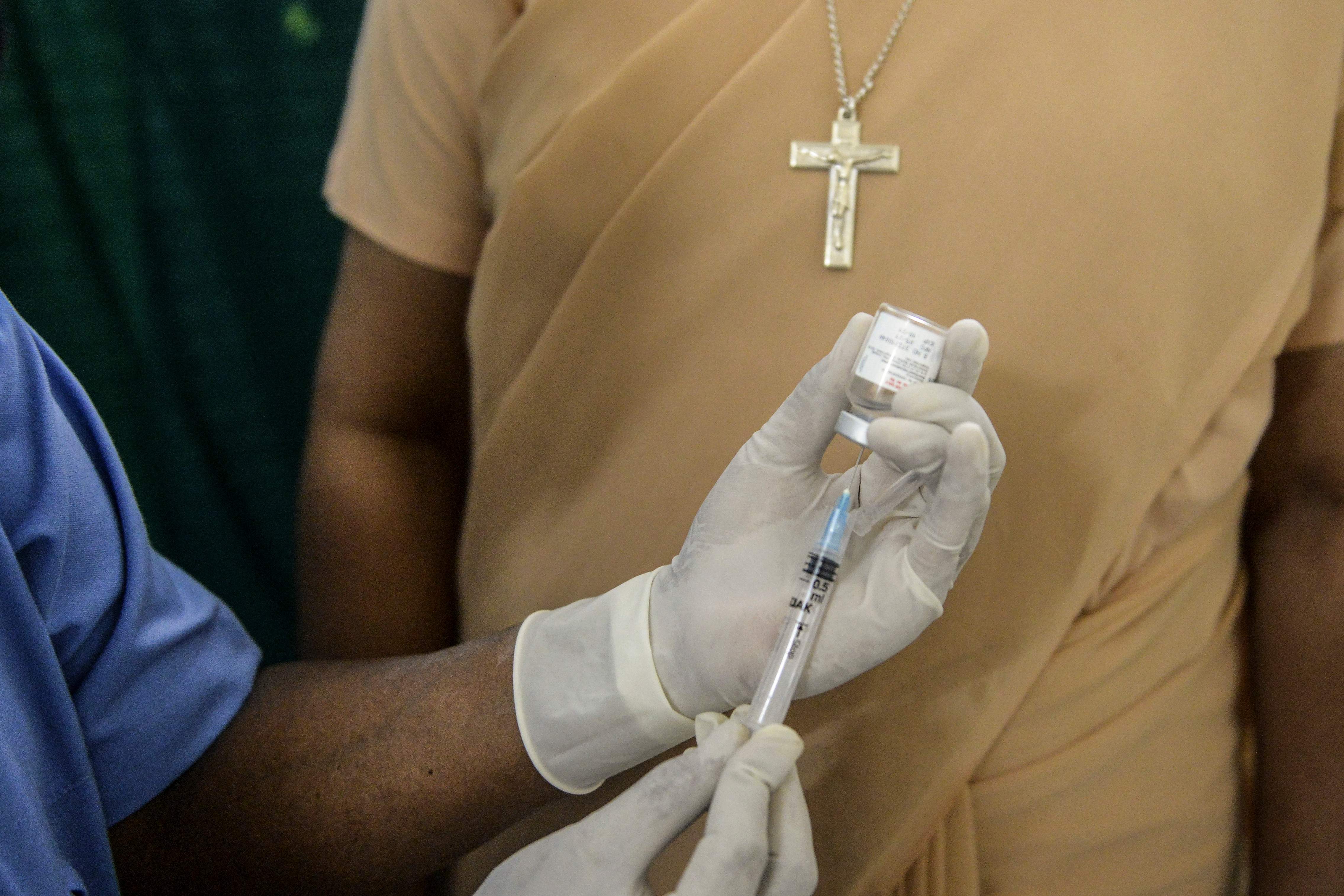Indian government forced to clarify homegrown Covid vaccine does not contain newborn calf serum
India has administered 272 million vaccine doses so far

Your support helps us to tell the story
From reproductive rights to climate change to Big Tech, The Independent is on the ground when the story is developing. Whether it's investigating the financials of Elon Musk's pro-Trump PAC or producing our latest documentary, 'The A Word', which shines a light on the American women fighting for reproductive rights, we know how important it is to parse out the facts from the messaging.
At such a critical moment in US history, we need reporters on the ground. Your donation allows us to keep sending journalists to speak to both sides of the story.
The Independent is trusted by Americans across the entire political spectrum. And unlike many other quality news outlets, we choose not to lock Americans out of our reporting and analysis with paywalls. We believe quality journalism should be available to everyone, paid for by those who can afford it.
Your support makes all the difference.The Indian government on Wednesday issued a clarification that its homegrown Covid vaccine, Covaxin, does not contain serum from newborn cows after social media posts claimed calves were “slaughtered” to make it.
The health ministry said in a statement that the “facts have been twisted and misrepresented” in the posts, which have since gone viral.
“The final vaccine (Covaxin) does not contain newborn calf serum at all and the calf serum is not an ingredient of the final vaccine product,” the health ministry said, adding that use of newborn calf serum during initial preparation was standard procedure.
The vaccine in question was developed by Hyderabad-based Bharat Biotech. It was approved on 16 January alongside the Oxford-AstraZeneca jab and the two were later followed by Russia’s Sputnik V in April.
The government was forced to issue an elaborate clarification, explaining the process of how calf serum is used in vaccine development, after a social media post by a member of the opposition Congress party called out the government on the issue.
Gaurav Pandhi, a national coordinator of digital communications for Congress, hit out at the Narendra Modi-led government by saying it had admitted calf serum was used in Covaxin in response to a Right to Information (RTI) request.
“In an RTI response, the Modi Govt has admitted that Covaxin consists Newborn Calf Serum .....which is a portion of clotted blood obtained from less than 20 days-young cow-calves, after slaughtering them,” he said. “THIS IS HEINOUS! This information should have been made public before.”
The tweet sparked controversy on Twitter in a Hindu-majority country where people are traditionally sensitive to issues related to cows as it is considered a holy animal in Hinduism.
The development comes as the South Asian nation faces a challenge vaccinating its huge population in the face of widespread vaccine hesitancy and unfounded rumours surrounding vaccinations. Rumours have been circulated through WhatsApp forwards and social media posts, particularly in rural areas, claiming that inoculation can lead to death, impotency and miscarriage.
Covaxin’s manufacturers Bharat Biotech also issued a statement saying bovine serum has been “widely used in the manufacture of vaccines globally for several decades”.
“Newborn calf serum is used in manufacturing of viral vaccines. It’s used for cells’ growth, but neither used in growth of SARS CoV2 virus nor in final formulation,” the company told the ANI news agency.
“Covaxin is highly purified to contain only inactivated virus components by removing other impurities,” the company added.
Join our commenting forum
Join thought-provoking conversations, follow other Independent readers and see their replies
Comments